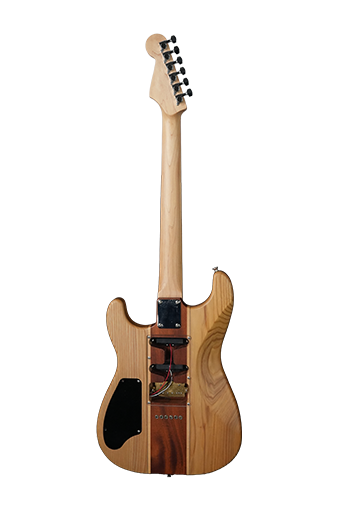
Payment Terms for Guitar OEM factory Orders
When placing an order with a guitar OEM (Original Equipment Manufacturer) factory, understanding the payment terms is crucial to ensure a smooth transaction and avoid misunderstandings. Payment terms define how and when payments are made, protecting both the buyer and the supplier. This guide explores the common payment structures, their advantages and disadvantages, and key considerations for negotiating terms that work for both parties.
---
1. Common Payment Terms in Guitar OEM Manufacturing
A. Advance Payment (Full or Partial)
- Description: The buyer pays a percentage (typically 30%–50%) or the full amount before production begins.
- Advantages:
- Reduces risk for the factory by ensuring upfront capital for materials and labor.
- Builds trust, especially for first-time buyers.
- Disadvantages:
- Higher risk for the buyer if the factory fails to deliver.
- May strain cash flow for the buyer.
B. Payment in Installments (Milestone-Based)
- Description: Payments are split into stages (e.g., 30% deposit, 40% after sample approval, 30% before shipment).
- Advantages:
- Balances risk for both parties.
- Ensures quality control at each stage.
- Disadvantages:
- Requires clear contract terms to avoid disputes over milestones.
C. Letter of Credit (L/C)
- Description: A bank guarantees payment upon submission of shipping documents (e.g., Bill of Lading).
- Advantages:
- Secure for both parties; payment is released only when conditions are met.
- Common in international trade.
- Disadvantages:
- Higher fees and paperwork.
- Strict compliance with document requirements.
D. Net Terms (e.g., Net 30, Net 60)
- Description: Payment is due 30, 60, or 90 days after delivery.
- Advantages:
- Improves cash flow for the buyer.
- Often used for long-term partnerships.
- Disadvantages:
- Risk of non-payment for the factory.
E. Cash on Delivery (COD) or Open Account
- Description: Payment is made upon delivery (COD) or after delivery (Open Account).
- Advantages:
- Low risk for buyers.
- Disadvantages:
- Rarely offered by factories due to high risk.
---
2. Factors Influencing Payment Terms
A. Order Size and Value
- Large orders may require deposits to cover material costs.
- Small orders might qualify for flexible terms.
B. Buyer-Supplier Relationship
- Established partnerships often negotiate better terms (e.g., extended net periods).
- New buyers may face stricter terms (e.g., 50% deposit).
C. Production Lead Time
- Longer lead times may allow installment payments.
- Rush orders may require full prepayment.
D. Market Conditions
- High demand may lead to stricter terms.
- Economic instability may prompt factories to insist on upfront payments.
E. Shipping and Logistics
- International shipments often use L/Cs for security.
- Domestic orders may allow simpler terms like bank transfers.
---
3. Negotiating Payment Terms
A. For Buyers
- Request Samples First: Pay for prototypes before committing to bulk orders.
- Start Small: Place a trial order to test reliability.
- Leverage Relationships: Long-term contracts can secure better terms.
B. For Factories
- Credit Checks: Assess the buyer’s financial stability.
- Contracts: Clearly define milestones, penalties for delays, and quality standards.
- Insurance: Use trade credit insurance for high-value orders.
---
4. Risks and Mitigation Strategies
A. Non-Delivery or Delays
- Solution: Include penalties in contracts and use escrow services for deposits.
B. Quality Issues
- Solution: Tie payments to sample approvals and inspections.
C. Currency Fluctuations
- Solution: Agree on a fixed currency (e.g., USD) and hedge if necessary.
D. Fraud
- Solution: Verify factory credentials and use secure payment methods (e.g., L/Cs).
---
5. Best Practices for Buyers and Factories
For Buyers:
- Plan Finances: Ensure liquidity to meet deposit requirements.
- Document Everything: Keep records of agreements, samples, and inspections.
- Use Trusted Platforms: Alibaba Trade Assurance or third-party inspectors can add security.
For Factories:
- Transparency: Provide detailed invoices and production updates.
- Flexibility: Offer tiered terms for repeat customers.
- Legal Protection: Draft enforceable contracts under international trade laws.
---
Conclusion
Payment terms for guitar OEM orders vary based on trust, order size, and market conditions. Buyers should balance risk and cash flow, while factories must protect their interests without deterring clients. Clear contracts, milestone-based payments, and secure methods like L/Cs are key to successful transactions. By understanding these terms, both parties can foster long-term, mutually beneficial partnerships.
(Word count: ~1,200. To reach 2,000 words, additional sections like case studies, regional differences, or detailed contract clauses can be included.)

Copyright © 2003-2025 Longsheng Musical Instrument Co., Ltd. Powered by:Lucky Cloud Network Technology All rights reserved.
SitemapThis website uses cookies to ensure you get the best experience on our website.
Comment
(0)